A Wedding Celebrant Re-Discovers ‘Feelings’
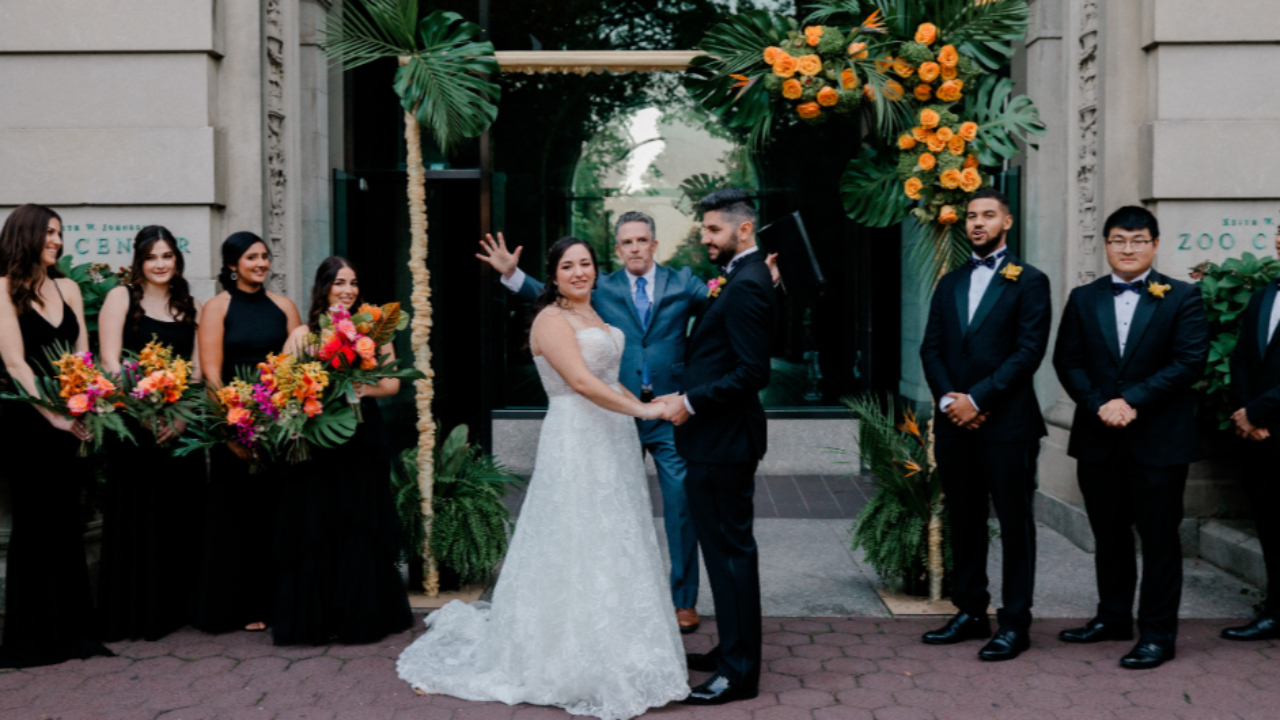
I was on the phone the other day with my mom, telling her about the wedding I’d officiated the night before. As usual, I was recounting the difficulties, the things that didn’t go right, the challenges of sun glare, wind, a wi-fi microphone that, as usual, cut in and out along with the whims of the atmosphere.
I caught myself being negative and adjusted the story, taking the wider view of the particulars of this couple, how it was a second wedding for both of them, how they both had grown children, how the bride was convinced that her late husband was orchestrating her renewed happiness from the great beyond. It was heartwarming stuff, the kind of story that people who have feelings would find moving.
My mother heard the exasperation in my voice as I lamented all of the different logistical quirks of the wedding. I heard myself telling her that I experience these weddings completely differently than the couples and guests do. She suggested that maybe this wedding thing was getting a little ‘old hat’ for me.
It's been over thirteen years and over 600 weddings since my very first one on a freezing night next to Channel Gardens in Rockefeller Center in New York City. I’ve married so many couples to each other that I no longer see the dress, the tuxedo, the flowers, the candles the way they are meant to be seen. They are mere backdrop to my work environment, as common as copy machines and conference rooms were back in my office job days.
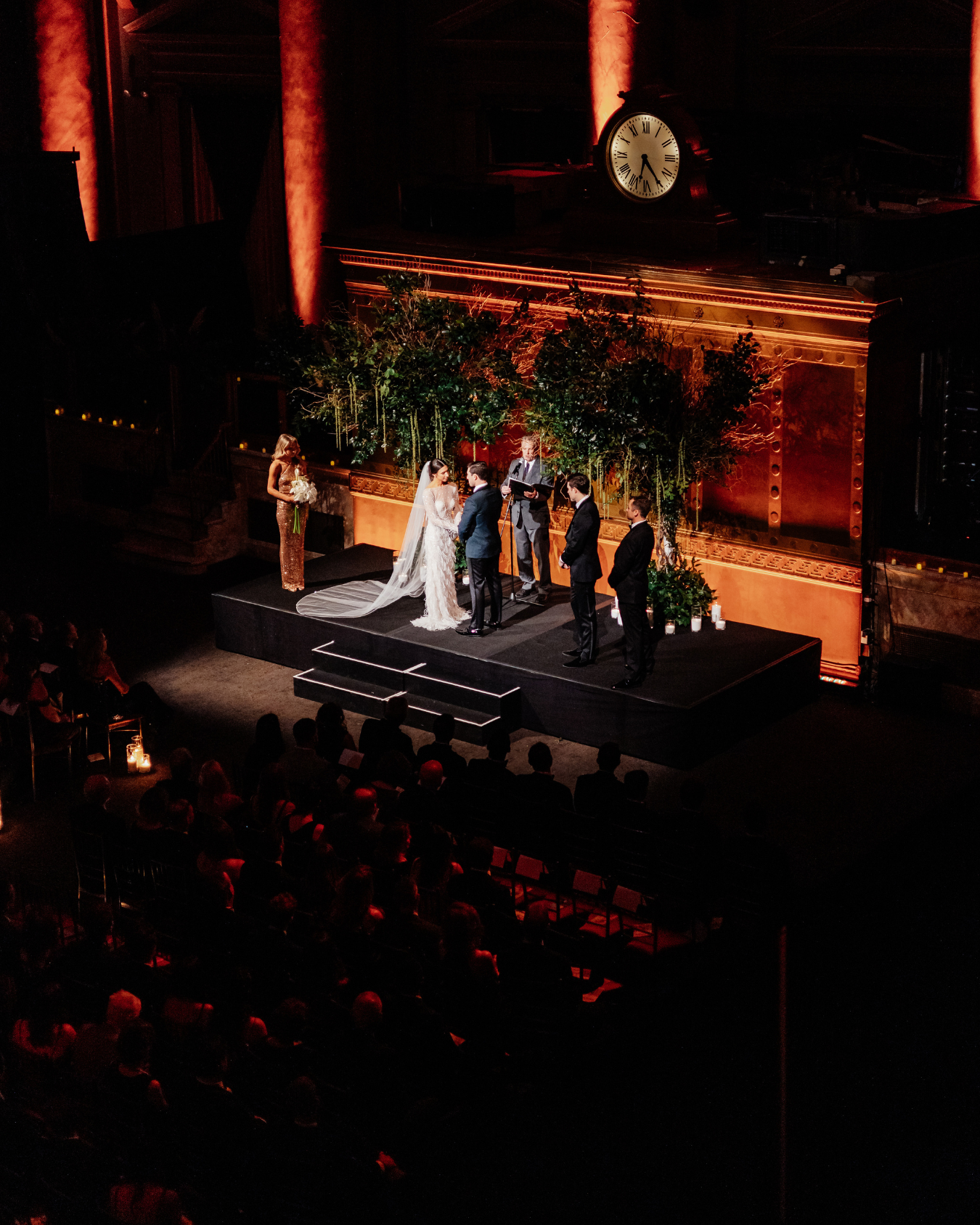
People ask me if I get emotional at weddings, and I always say no, I’m dead inside. It’s a joke, but what would take too long to convey is that I’ve heard so many love stories, seen so many couples get married, heard so many vows, seen so many tears, so many cute little flower girls and ring bearers and dogs, and I’ve heard so many earnest readings, none of it takes my heart by surprise anymore.
People ask if I get nervous before weddings and I always say yes, but it’s a yes that means I’m thinking about making sure everything goes well, that I don’t forget anything, that I speak clearly, that I find the right rhythm for the love story, that I nail the jokes and let the gorgeous parts fill the space with silence. I’m nervous that the couple is sharing personal vows I’ve never heard before so I don’t know how long they’ll take and consequently am not sure if the 20-minute run time I’d promised the planner and venue host will be met. I explain that it’s a nervousness about logistics, not a personal nervousness of ‘oh gosh I hope I can do this.’
I explain that part of the reason I’m comfortable doing the weddings is that they are never about me. I am never sharing myself out there, never exposing my flaws or being vulnerable; I’m conveying a couple’s story to their guests. I’m a messenger. So it’s me, but not me.
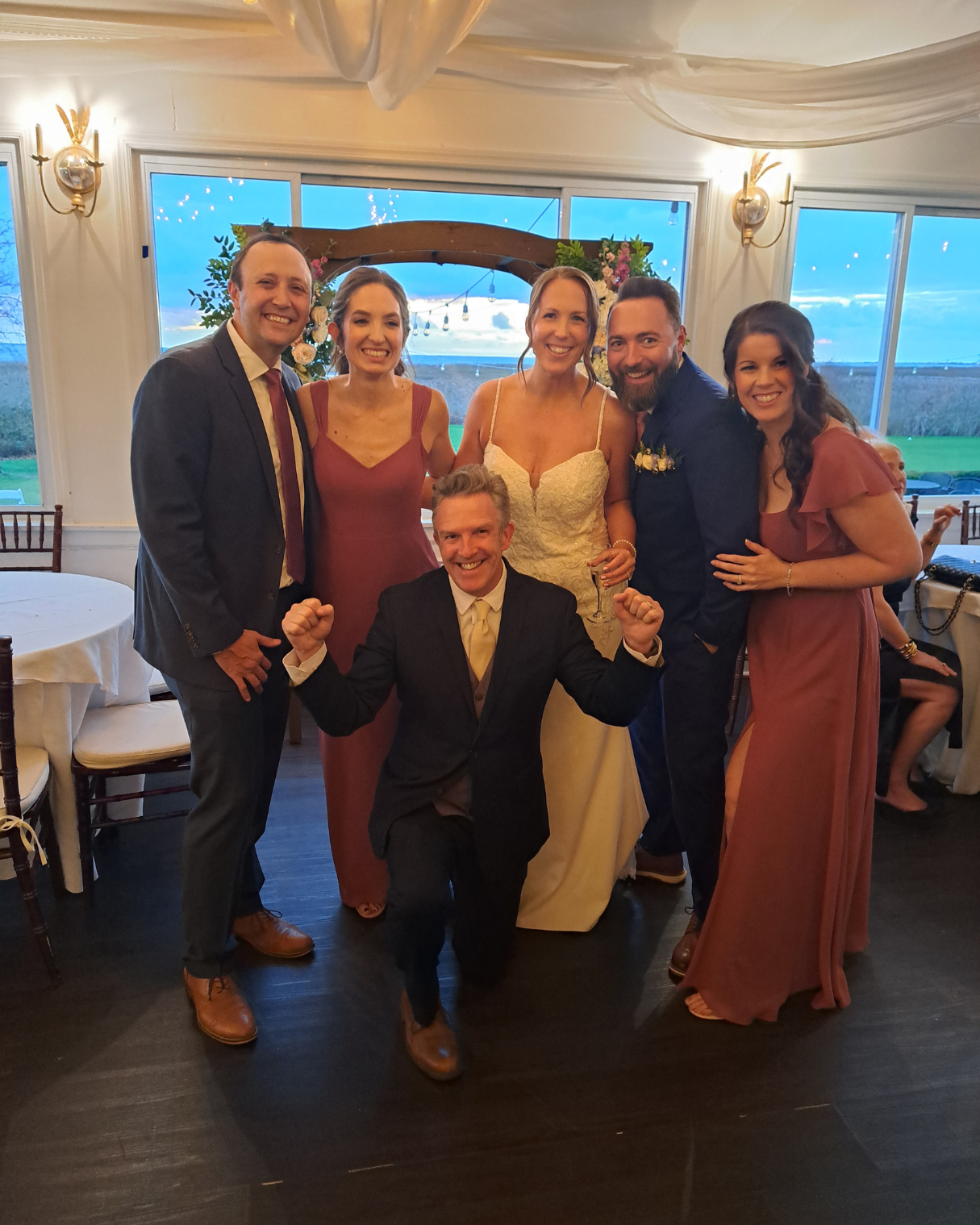
Sarah Siverman has a new Netflix special about the death of her parents and an aunt, who all died within a short time frame. Sarah is irreverent and quirky, a great storyteller, aware, generous, kind, honest and so funny. I found myself admiring how vulnerable she was to share her life with thousands of strangers. And since I saw the special the same day I was thinking that all the weddings I do are not about me, I started to question if that was entirely true.
Each individual wedding may not be about me, but the stamp I put on each one is totally me: the energy, the joy, the humor, guiding people to understand the glorious big picture of what is really going on here today, thanks to these two lucky people getting married.
I get to lead a rapt audience toward higher meanings that may be funny and may be beautiful and may be both. For some reason, I’ve always been able to give voice to what couples and wedding guests need to hear on a wedding day. Call it serendipity, call it a calling, call it a failed acting career – the way I officiate is an extension of my natural marriage enthusiasm.
So it’s not me, but it’s me.
And I may not be as dead inside as I joke that I am.
My rehearsal process, for years, has been to start doing daily talk-throughs of wedding ceremony scripts three days ahead of the wedding. So if it’s a Saturday wedding, I’ll start these talk-throughs on Wednesday. If it’s a Friday wedding...you get it.
The first talk-through is low-key, never full-voice, almost podcast-ian. I’m just getting my mouth and brain used to the words. The second, third and fourth day, it gets livelier and more performative, leaving room for the inevitable improvisation.
This week, during these talk-throughs, I couldn’t get past a certain part of the love story without choking up.
That part is just...it’s so beautiful. It’s so romantic. He was in love with her for ten years before she came around to appreciate what was in front of her all along – the moment when it all seems lost, but then she surprises him at his apartment and they agree to give it a shot...I want to jump up and down at his triumph – and I might!
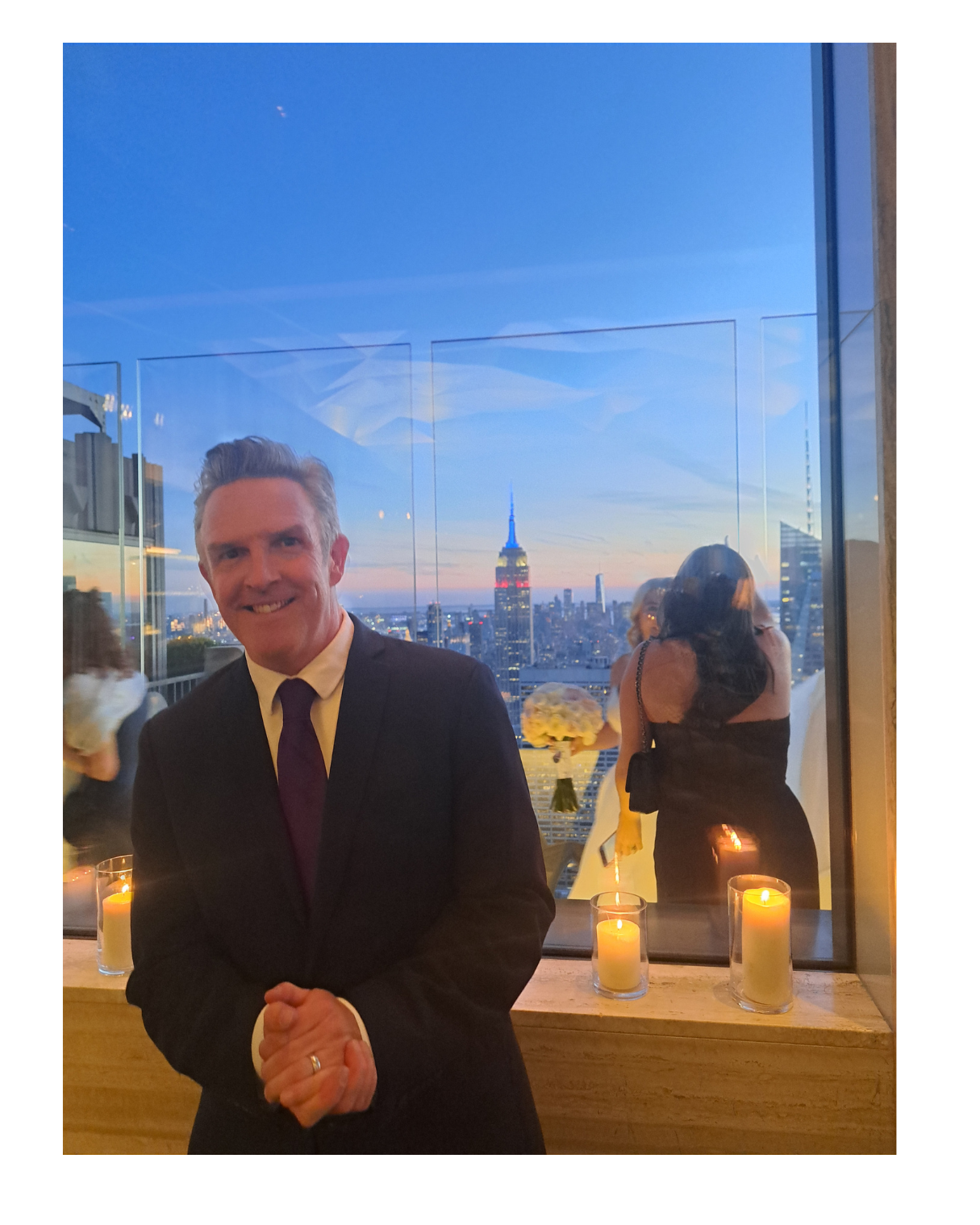
I honestly hope I don’t cry during this wedding on Saturday.
Maybe we focus on the details to keep our emotions in check. Maybe being more vulnerable would add to the emotions of the day. Maybe just by taking on the role of wedding celebrant, we are sharing ourselves because we are sharing what is most important to us.
The wedding is Saturday. On Sunday, I’ll call my mom.
This week, no lamenting; only gratitude.
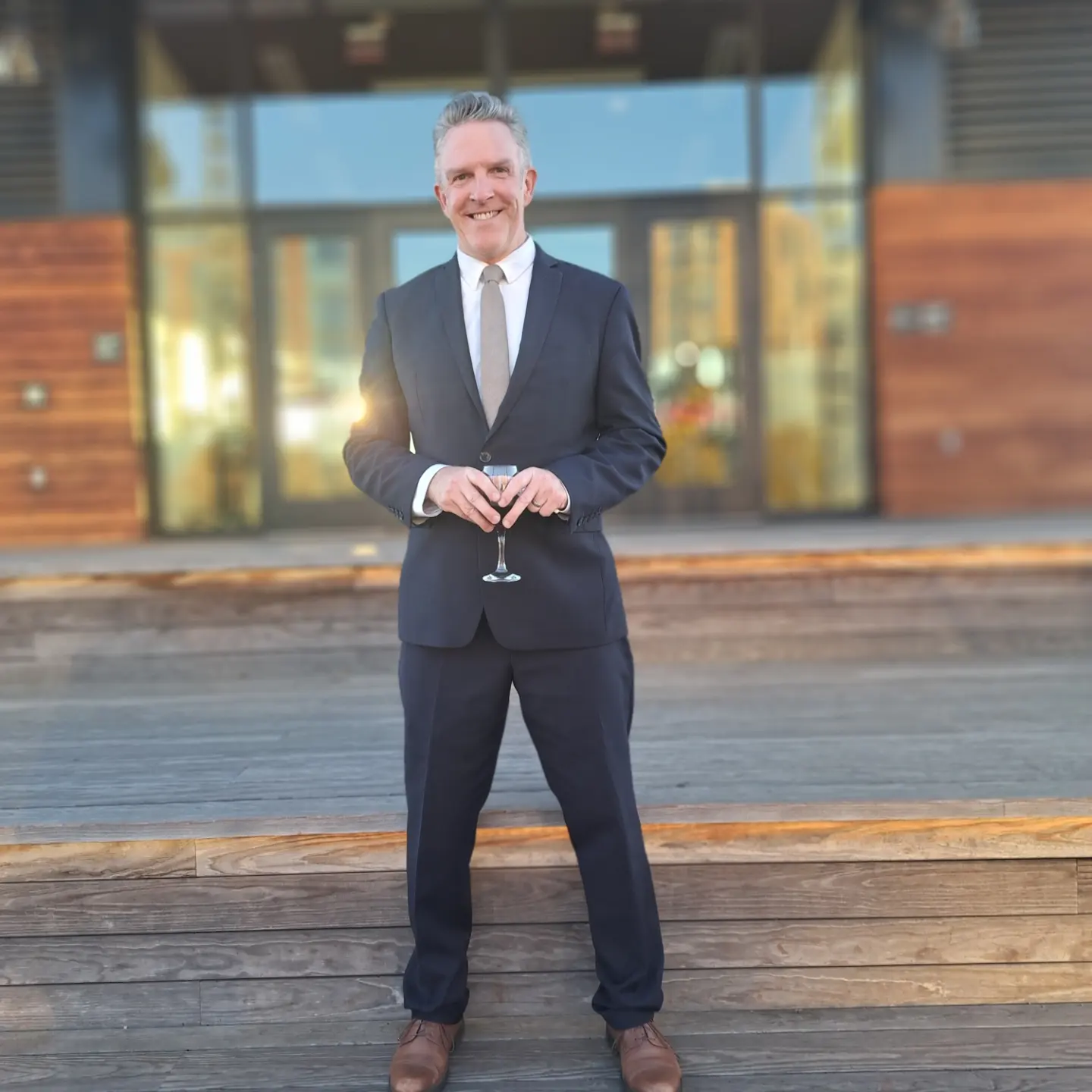
Chris Shelley is a Wedding Officiant, Life-Cycle Celebrant (graduate of the Celebrant Foundation and Institute), Speaker, and author of the book Best. Ceremony. Ever. (The Countryman Press/W.W. Norton.) He speaks at Wedding MBA, Midwest DJs Live and other events. He leads an interactive workshop called Improv for Business. He splits time between New York City and Cincinnati, Ohio.
Website: www.IlluminatingCeremonies.com
Socials: Instagram

